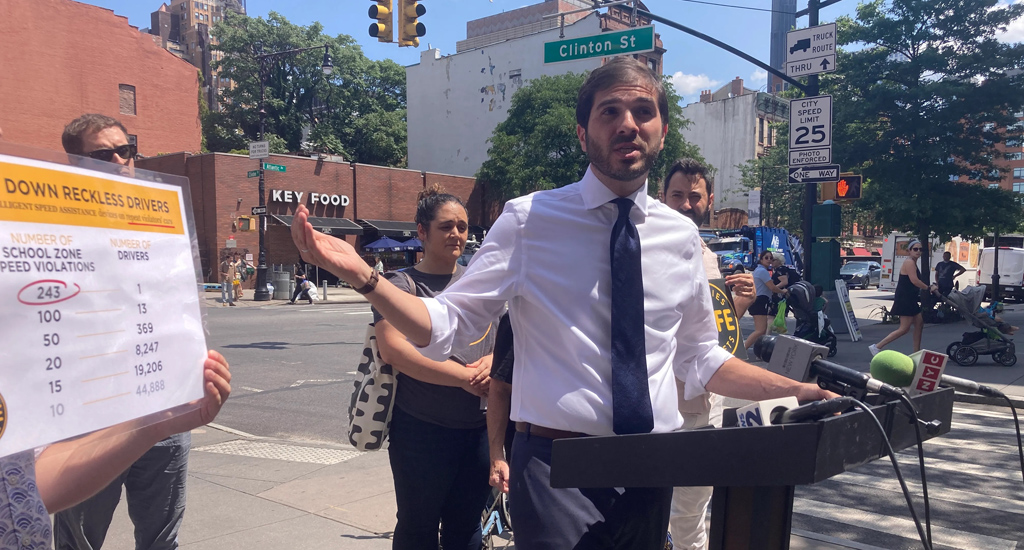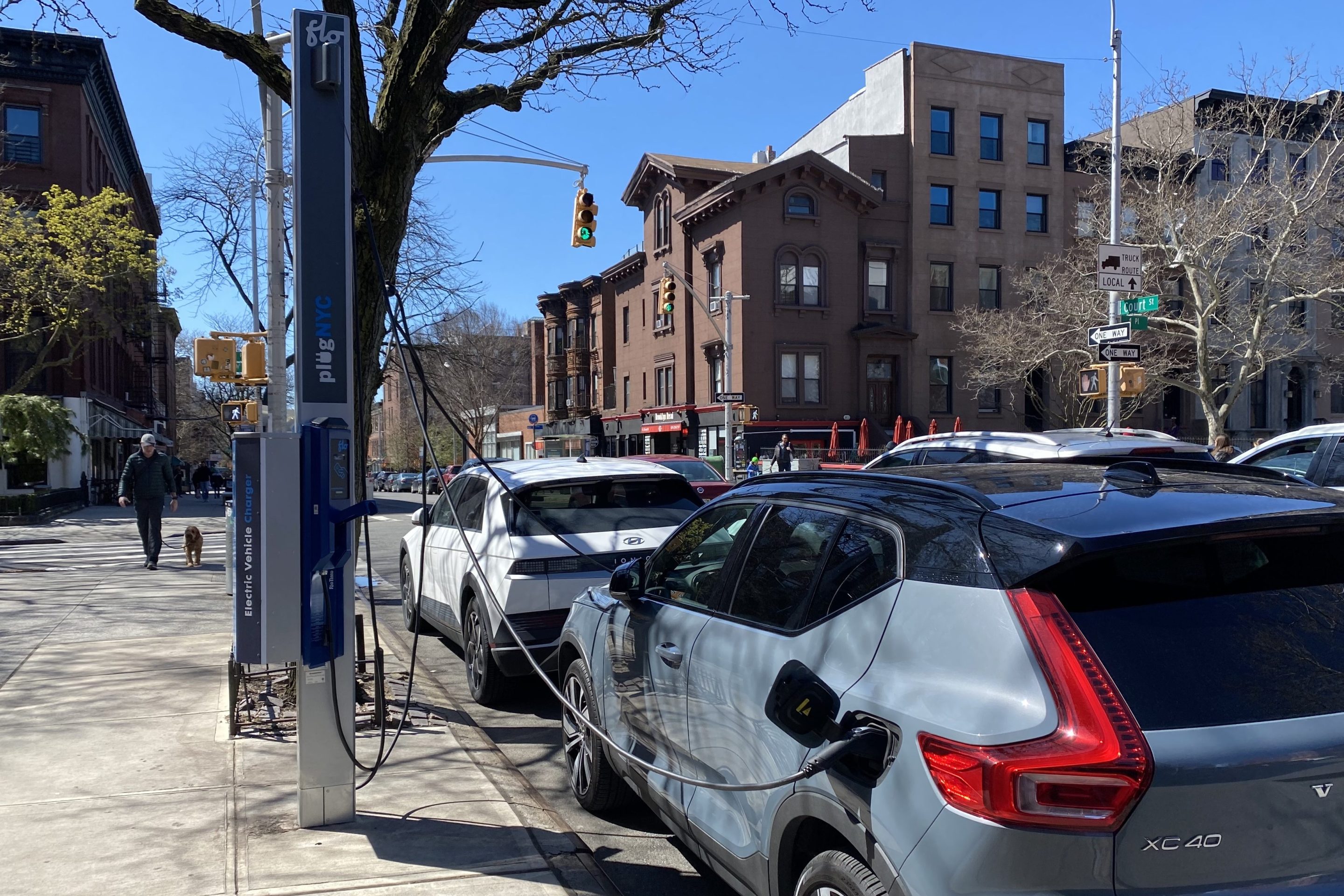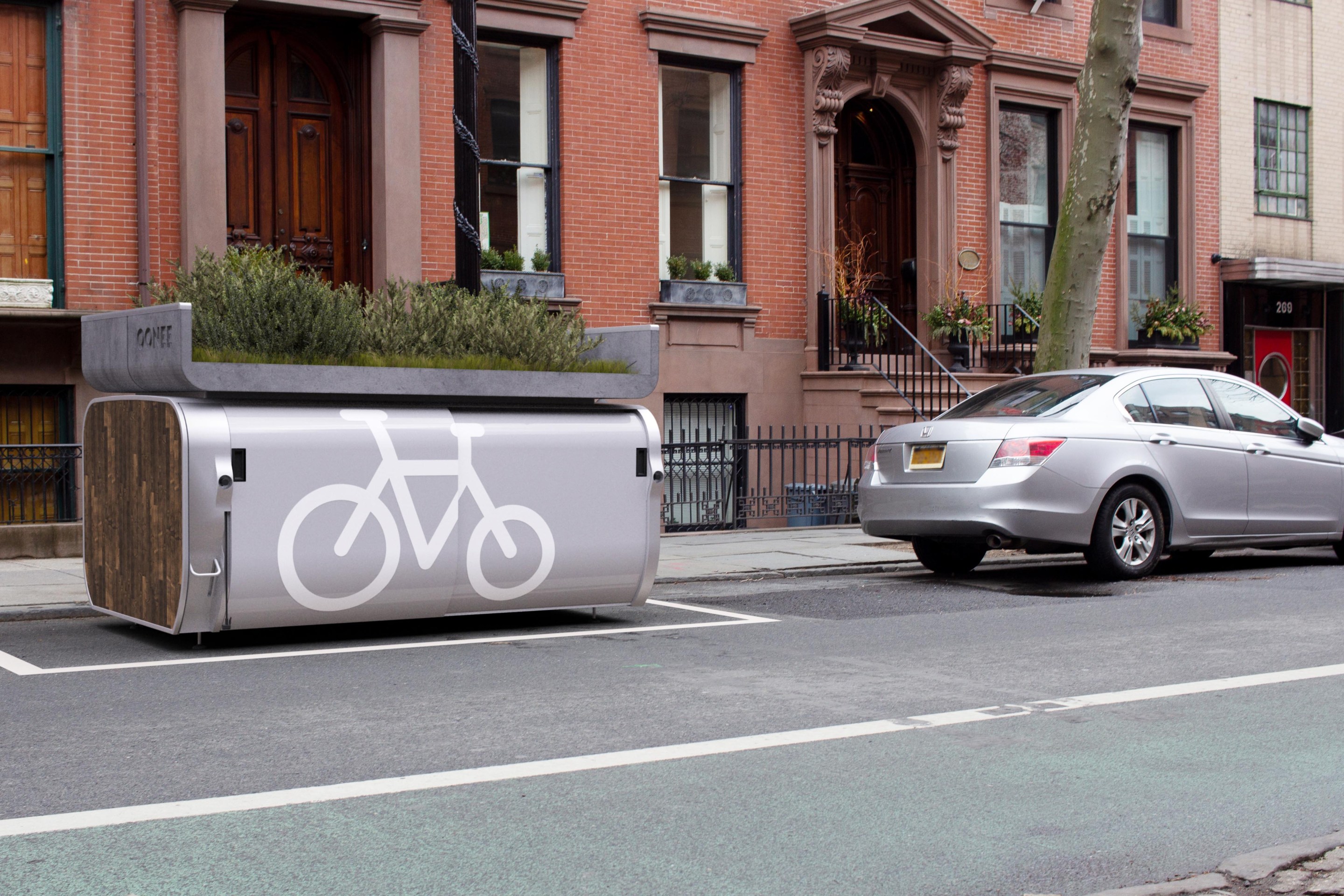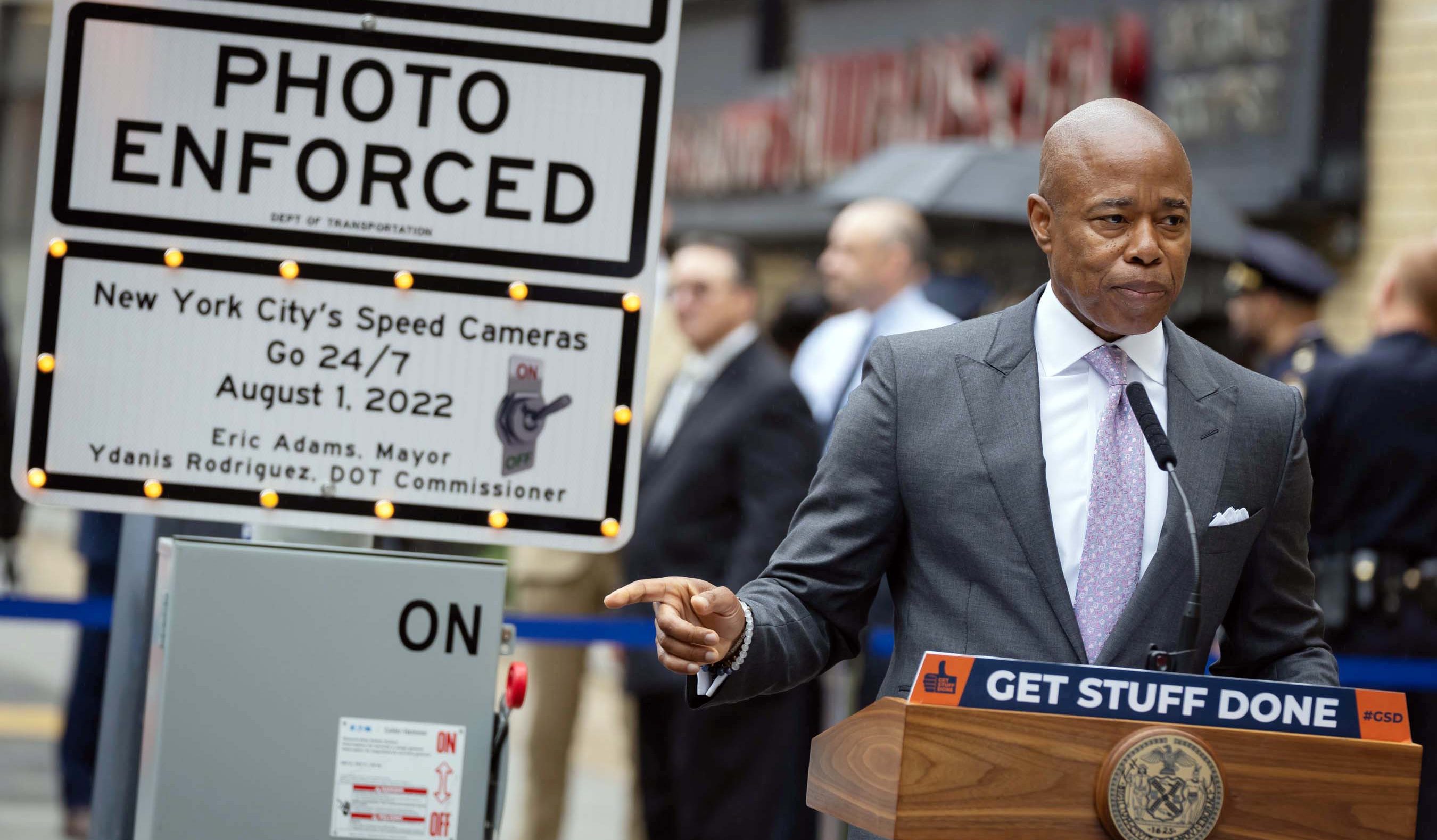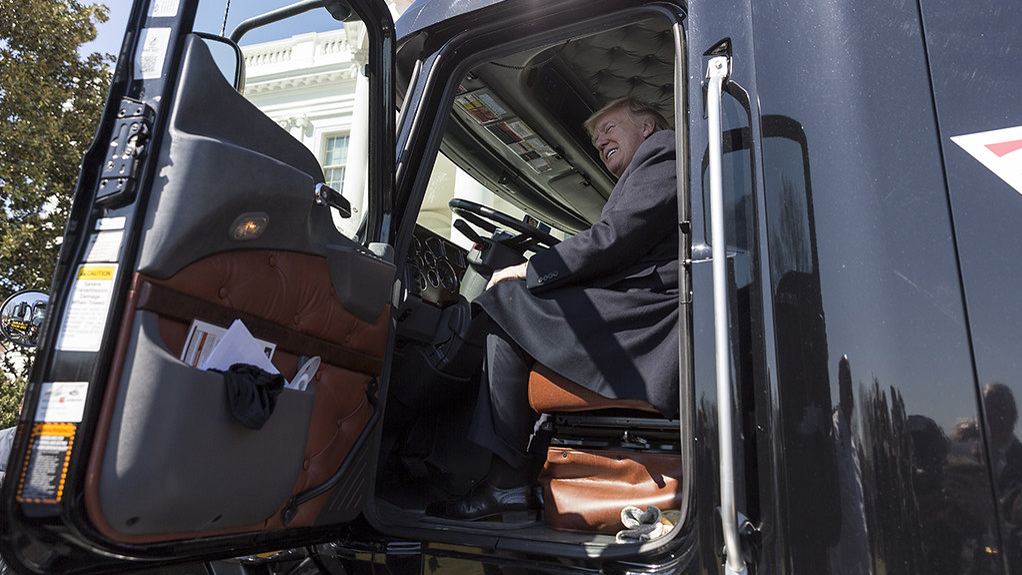Workers, City Coffers Will Lose Out if Council Ditches Year-Round Street Dining, Experts Say
3:09 PM EST on March 1, 2023
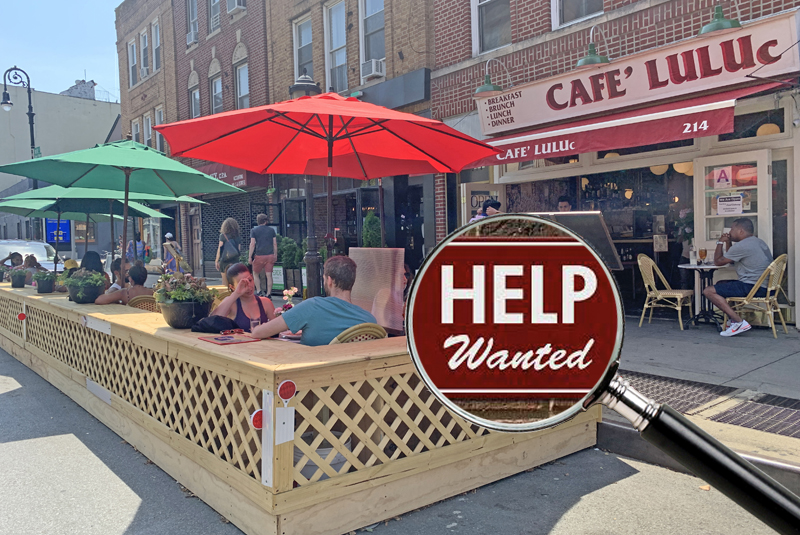
Scratch the surface of an outdoor dining shed and you see a help wanted sign.
Has the Council thought this through?
Restaurant and café owners said they'll have to cut staff and will struggle to store their dining sheds if city lawmakers move ahead with a plan to turn year-round outdoor dining into a seasonal program — yet the Council has not analyzed the economic harm that its bill could cause to one of New York's signature industries.
"They definitely should do a study," Council Member Chi Ossé, who represents restaurant-heavy Bedford-Stuyvesant, told Streetsblog. "An Olive Garden that can afford to pay for these structures to be taken up and down will not have a problem with this bill, but I represent a community that has a lot of small businesses where the labor in and of itself is going to affect their business."
Ossé called the current bill's current approach "absolutism," and said he favors a year-round option for those restaurants that wanted it.
"Some of these beautiful outdoor dining structures aren’t just for the small businesses," the Brooklyn Democrat said. "It’s for the workers and their jobs, it’s for beautifying the neighborhood."
Smaller operations lacking resources to remove and build back their street seating every year could be worst affected, making outdoor dining once again a luxury mostly for well-heeled neighborhoods, restaurateurs warned.
South Bronx café Boogie Down Grind tripled its space when it built an award-winning structure in the style of a graffitied subway car that has become a neighborhood gathering hub for coffee, to play chess, or to just have a seat, according to its owner.
"Our space is small, so having that extra space is really important — it’s priceless," said Majora Carter, a well-known local developer and activist. "If we don’t serve as many people we won’t need as many staff."
The transit-themed structure also drew more attention to her business on the corner of Hunts Point and Seneca Avenues, she said.
"We were being discovered by people who had lived in the neighborhood for god knows how long," she said. "As a small business owner I saw literally the bottom line around that."

The Council's proposed seasonal program, which Streetsblog revealed earlier this week, quickly raised concerns among restaurateurs and open space advocates who believe anything but a year-round program would severely reduce the popular initiative that repurposed space previously reserved for private car storage.
Thiru Rajamani, the owner of Indian restaurant Dosa Royale in Clinton Hill, said losing the space he set up along Dekalb Avenue would cause him to cut about one-third of his staff, reduce manager hours, and make it harder to hire back workers in the summer because some would find jobs elsewhere.
There'll also be less work for gardeners he hired to beautify his 25-seat shed with greenery, according to Rajamani.
"It’s like a domino effect," he said.
Another Brooklyn restaurant operator agreed, saying the sheds were still needed to make up for pandemic losses.
"Whether it’s 25 percent of my seating or 50 percent or 3 percent, it’s going to take restaurants years to make up for what we lost over the last three years," said Samantha Fox, who owns Mama Fox in Bedford-Stuyvesant.
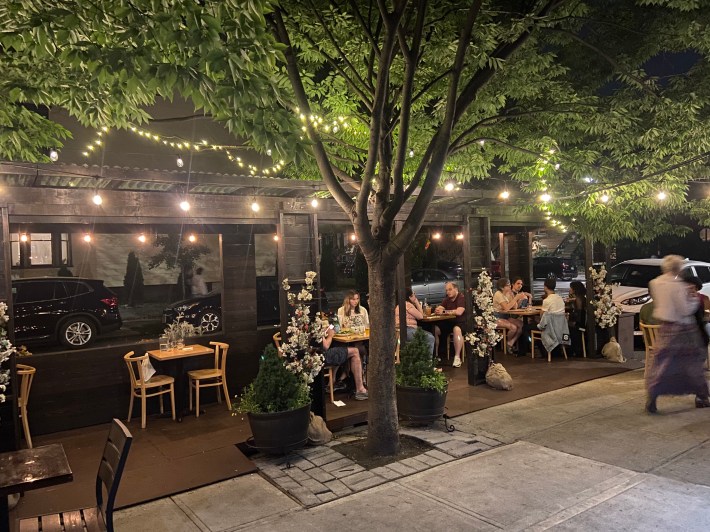
Ossé was one of a growing chorus of Council members who came out against Speaker Adrienne Adams's push for a seasonal program in the wake of Streetsblog's reporting. This week, several members publicly spoke up in favor of a 12-month program, including Ossé's Brooklyn colleagues Jennifer Gutiérrez (D-Bushwick) and Lincoln Restler (D-Brooklyn Heights), along with Queens pol Tiffany Cabán (D-Astoria).
District 22 restaurants, diners and community members support year-round open restaurants. Let’s make it happen! https://t.co/59s5nB7luX
— Council Member Tiffany Cabán (D22) (@CabanD22) March 1, 2023
Sidewalk outdoor dining would still be allowed year-round under the Council's plan and Speaker Adams has said in her personal opinion that “streeteries” should be on the sidewalk instead of in the curbside lanes. Yet she also praised the program before a group of Brooklyn business leaders last month.
“New York looks like Paris in some places — better than Paris actually in some places, especially here in Brooklyn, I must say,” Adams said on Feb. 7. “To come through this pandemic and create something so out of the box I think that it would be a tragedy to throw that away.”
The speaker's press office has not responded for comment to this story or any of Streetsblog's recent outdoor dining coverage. In an email to other reporters, the Speaker's office claimed Streetsblog's reporting was "premature," but no one in the Council nor the Speaker's office has asked for a correction.
Council bills often include a "fiscal impact statement," but none has apparently been drafted for this legislation, which would affect an industry that retained some 100,000 jobs during the pandemic thanks to outdoor dining, city officials have said. A Council committee report last year said that 12,124 restaurants had taken advantage of the outdoor dining program, roughly half of which had both sidewalk and roadway dining.
The bill's sponsor, Marjorie Velázquez (D-Bronx), also didn't respond to a request for comment. Her proposed law garnered just three sponsors of the 51-member body, including herself, and Manhattan Council members Keith Powers and Julie Menin.
It's safe to say that the end of the year-round outdoor dining option would, at the very least, be a disruption for restaurateurs. When Paris moved to seasonal roadway cafés, the change led to a two-thirds reduction in street-side setups, Slate recently reported.
Reverting the spaces to parking would also reduce tax revenues, according to urban planner Mike Lydon, who roughly calculated that outdoor dining sheds yield as much as five times the money as an average $2-an-hour metered car storage space — and most city spots are free.
That extra cash could go back into improving the streetscape in neighborhoods that need it most, the expert said, also urging the Council to more closely study the knock-on effects of its controversial revisions.
"If they haven’t studied the economic impacts of outdoor dining, that’s a problem," Lydon said. "They’re missing something if they’re not taking a good hard look at that."
The Department of Transportation, which runs the program, has done some analysis of outdoor dining successes, reporting in October that businesses opened in greater number and made more money along open streets corridors compared to their neighbors on roads without restrictions on car traffic during the first 18 months of the pandemic.
The program also offers easier applications and fewer regulations compared to pre-Covid sidewalk café licensing, part of the reason that the program brought outdoor dining to 17 community districts that didn't have it before, especially in lower-income communities of color such as Hunts Point, where Carter's subway-themed shed opened in 2021, and she worried that the seasonal restrictions would reverse the gains.
"If the Council makes the program seasonal, outdoor seating will be become a luxury for the few instead of the important step towards democratizing the streetscape that has so much potential for a livable city that favors people over cars," Carter said.
Kevin Duggan joined Streetsblog in October, 2022, after covering transportation for amNY. Duggan has been covering New York since about 2017 after getting his masters in journalism from Dublin City University in Ireland. After some freelancing, he landed a job with Vince DiMiceli’s Brooklyn Paper, where he covered southern Brooklyn neighborhoods and, later, Brownstone Brooklyn. He’s on Twitter at @kduggan16. And his email address is kevin@streetsblog.org.
Stay in touch
Sign up for our free newsletter
More from Streetsblog New York City
Thursday’s Headlines: Speed-Limiting Tech Edition
State Sen. Andrew Gounardes continues his push to force reckless drivers to install speed limiters in their cars. Plus more news.
DOT Official: All Our Free Parking Justifies Keeping Curb Space for EVs
If only someone could do something about the parking!
New York City to Install 500 Secure Bike Parking Hubs In The Next Five Years: Sources
Your bike may finally get a roof over its head.
Adams Backs Lower Speed Limits, Calls Crashes ‘Accidents’
The mayor wants New York City drivers to "slow down," but it's not clear yet how many streets will get lower speed limits.
Wednesday’s Headlines: Trump Posts About Congestion Pricing Edition
Donald Trump comments on congestion pricing — no surprise, he's against it. Plus more news.
